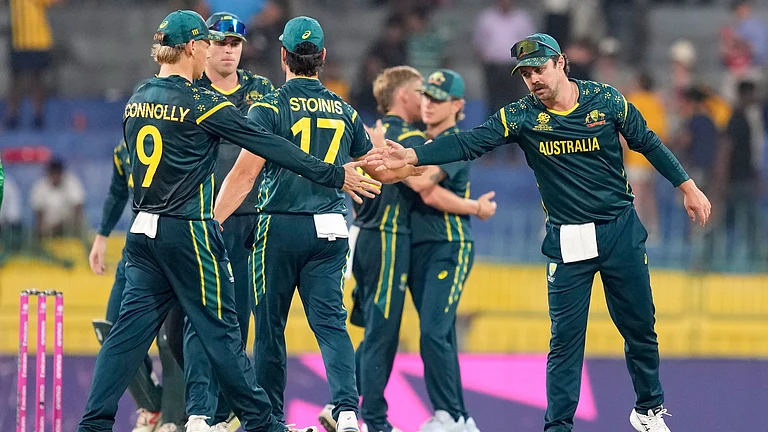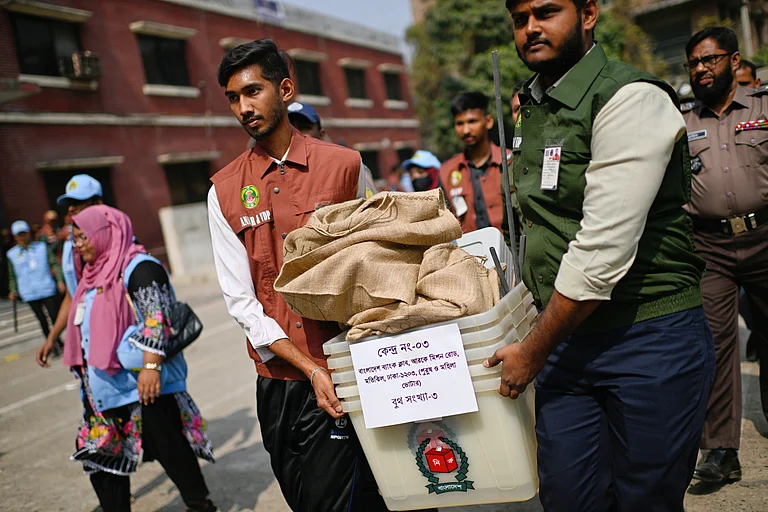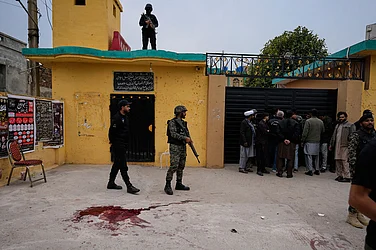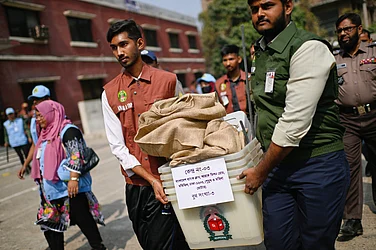A United Nations Security Council (UNSC) report has called Tehreek-e-Taliban (TTP) a persistent threat to Pakistan's security and has termed chances of peace in the ongoing talks as bleak, according to a media report.
The annual report of the 1988 Taliban Sanctions Committee monitoring team noted TTP’s linkages with the Afghan Taliban and explained how the group benefitted from the takeover of Afghanistan by the Afghan Taliban last year and touched upon its relations with other terrorist groups operating from Afghanistan.
The Dawn newspaper's report said the banned TTP had up to 4,000 fighters based in east and south-east areas along the Afghanistan-Pakistan border and made up the largest group of foreign fighters based there.
This was the team’s first report for the committee since the fall of Ashraf Ghani's government in Afghanistan last year. The report's original focus was on the Taliban’s internal politics, its finances, relations with Al-Qaeda, ISIS and other terrorist groups, and the implementation of the UNSC sanctions.
The TTP is an alliance of militant networks formed in 2007 to unify opposition against the Pakistani military and its stated objectives are the expulsion of Islamabad’s influence in the Federally Administered Tribal Areas and neighboring Khyber Pakhtunkhwa Province in Pakistan and the implementation of a strict interpretation of sharia throughout Pakistan, according to the US National Counter Counterterrorism Center.
The UNSC report coincided with the start of the third round of talks between the Pakistan government and TTP last Thursday.
The first round of talks, held in November last year, had yielded a month-long ceasefire that later broke down after TTP accused Islamabad of not fulfilling promises. The TTP subsequently resumed attacks against Pakistani forces.
A total of 79 people have died in 46 TTP attacks so far this year, according to the Pakistan Institute of Peace Studies. Most of these attacks were directed at law enforcement personnel.
On March 30, the TTP, emulating the Afghan Taliban’s strategy during the US war in Afghanistan, announced a "Spring Offensive" against security forces in Pakistan.
The peace process, which is being facilitated by Taliban Interior Minister Sirajuddin Haqqani, meanwhile, resumed earlier in May after both sides took confidence-building measures.
The TTP militants have been fighting with the Pakistani security forces since 2008, when the outfit was set up. While it has been said to be associated with the Afghabn Taliban, it's now being pressed by the Afghan Taliban for talks with the Pakistan government to end the conflict.
The TTP first announced a ceasefire on the occasion of Eid and later extended it after Pakistan released a couple of TTP commanders, who were then on death row. The round, in which the Pakistani delegation was led by Peshawar Corps Commander Lieutenant General Faiz Hamid, ended with both sides presenting their set of demands, as per the Dawn report.
The TTP demanded the withdrawal of security forces from erstwhile tribal areas, annulment of the merger of FATA with Khyber-Pakhtunkhwa province, withdrawal of cases against its fighters and their release, and introduction of Shariah-based ‘Nizam-e-Adl’ in Malakand Division.
Although security forces here say that these demands are unacceptable and their acceptance would mean capitulation of the Pakistani state, the government delegation still entered into the third round of talks.
The top priority for the Pakistani government in the latest round is to secure an extension in the ceasefire, which is expiring on May 30. The Pakistani side has, however, maintained complete silence on the talks.
The UN report has warned that the TTP "is focused on a long-term campaign against the Pakistani state", which implies "that ceasefire deals have a limited chance of success".
It is important to note that TTP, which has recently been reinvigorated through the return of 17 splinter groups into its fold, feels that maintaining a hardline position in talks with the Pakistan government would help maintain unity in its ranks.
Sirajuddin Haqqani, whose Haqqani Network is said to be independent of the grouping within the Afghan Taliban, has been “relied upon more than anyone else in the de facto administration” to act as an intermediary in this process, which highlights the influence that he holds over TTP and other Pashtun groups.
The report observed that as compared to other foreign militant groups, TTP was the biggest beneficiary of last year’s Taliban takeover and used this opportunity for conducting attacks and operations in Pakistan.
“The TTP also continues to exist as a stand-alone force, rather than feeling pressure to merge its fighters into Afghan Taliban units, as is the prospect for most foreign terrorist fighters,” it further added.
(With PTI inputs)


























